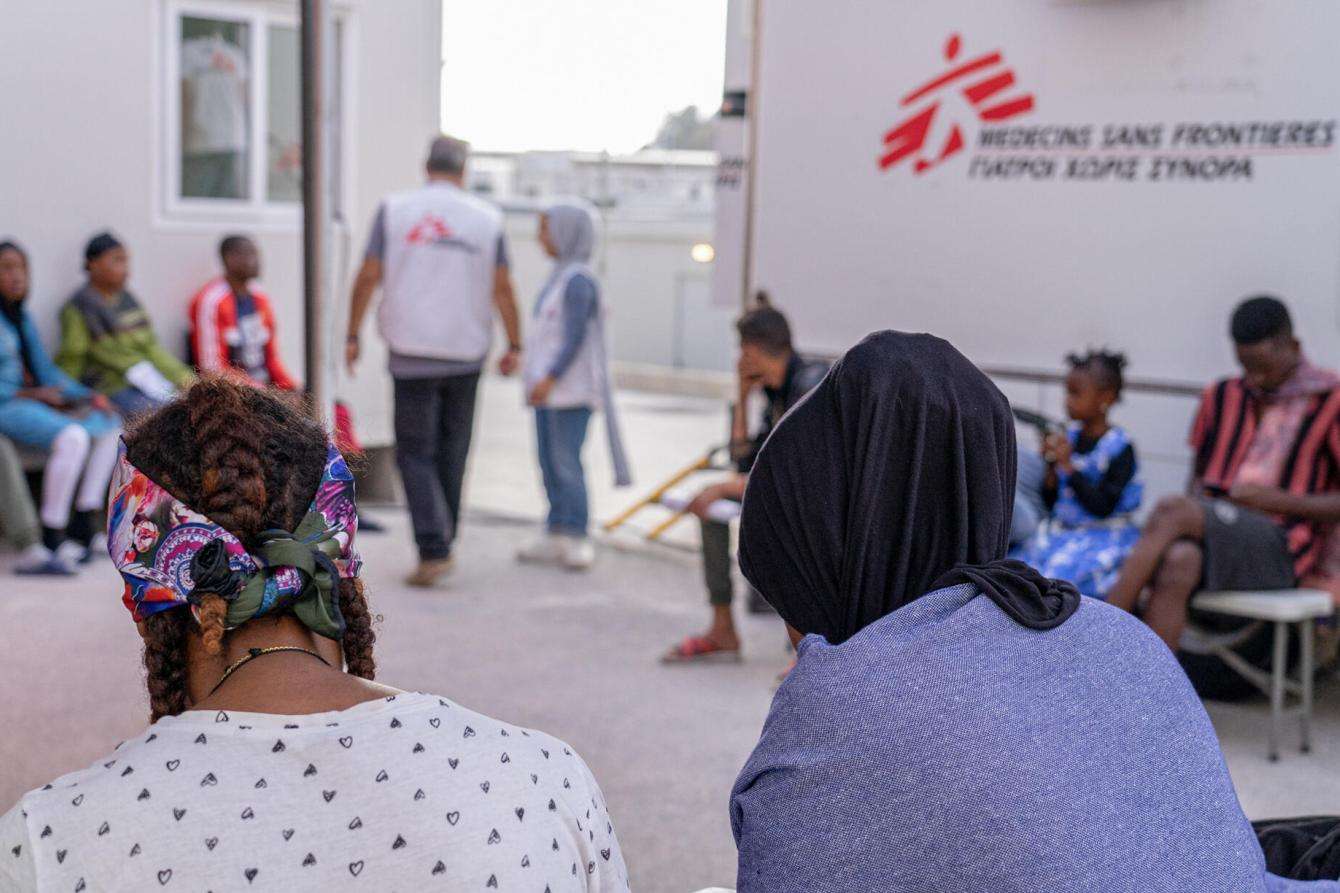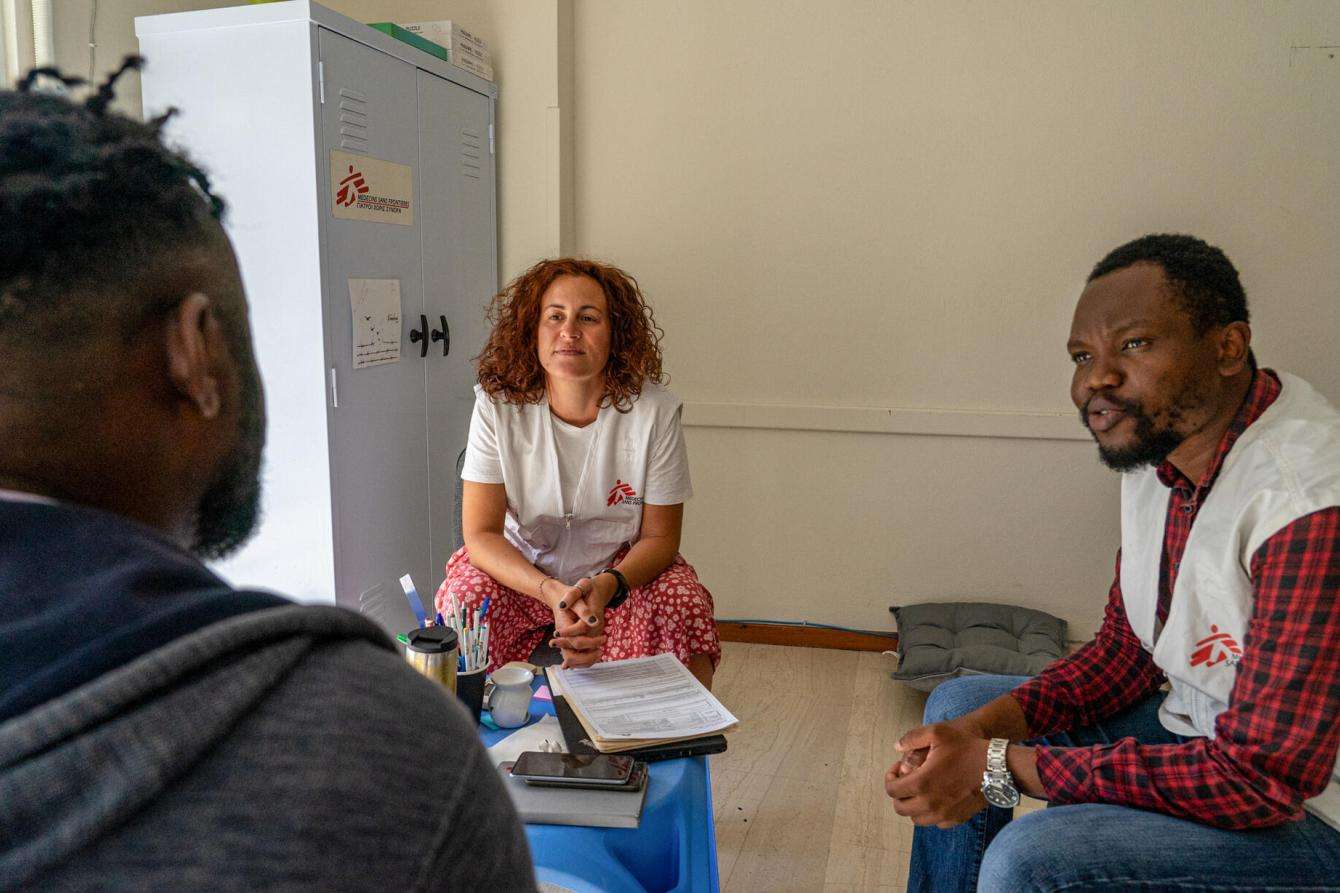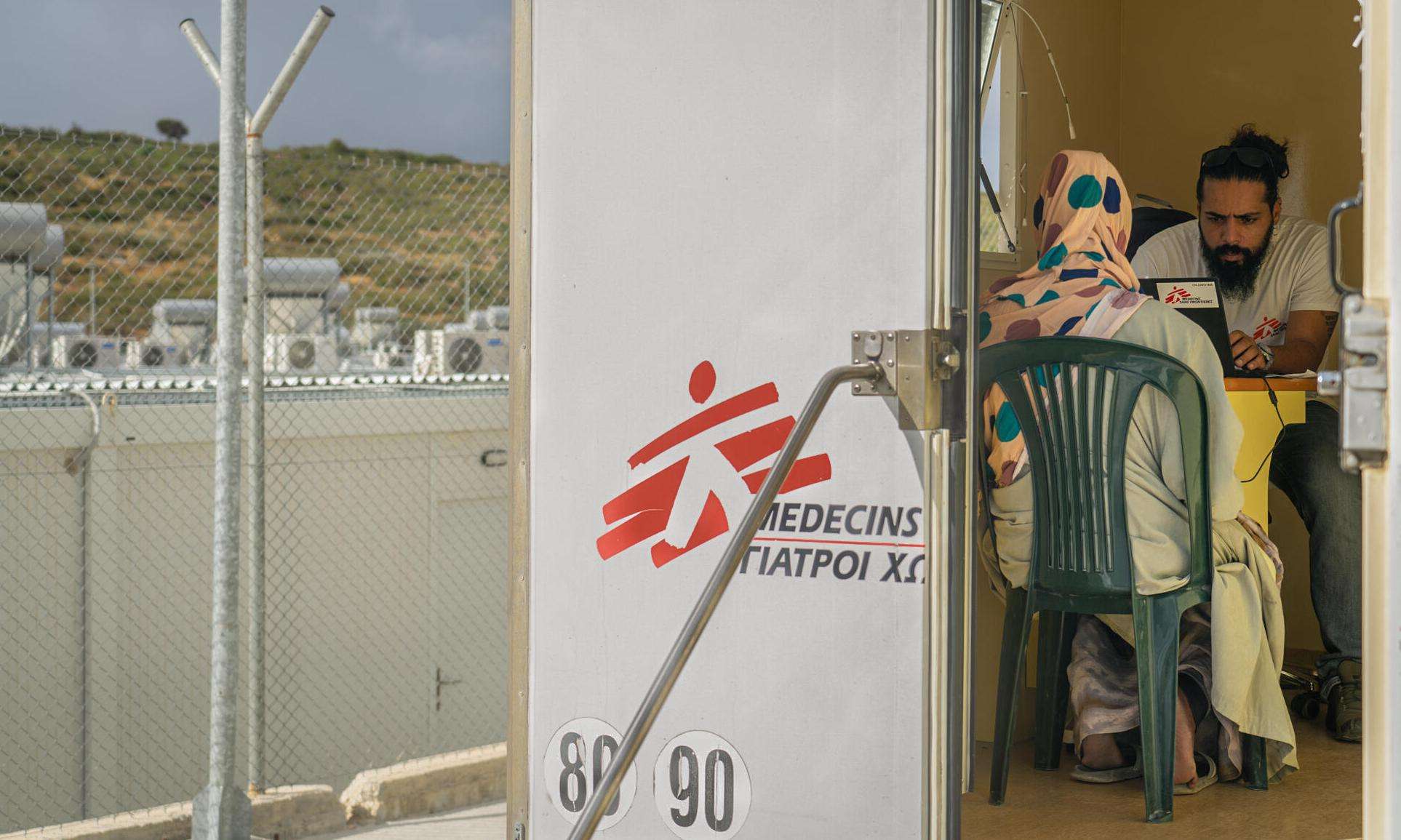Trying to see a doctor, getting hold of insulin treatment for diabetes, seeking legal advice prior to an asylum interview—all of these are a challenge for the refugees, migrants, and asylum-seekers stranded in the isolated and highly securitized Zervou center on the Greek island of Samos.
Zervou is one of five planned “closed-control access centers” designed as restrictive reception facilities for all asylum seekers arriving on the Aegean islands while they await the asylum process. Three centers have opened in the last 14 months—on Samos, Leros, and Kos islands—and two more are scheduled to open in 2023 on Lesvos and Chios. Doctors Without Borders/Médecins Sans Frontières (MSF) flagged serious concerns about the centers ahead of their opening, stating they were part of an aggressive European Union-funded containment policy to detain and deport people seeking safety in Europe. As feared, MSF teams working in Zervou since it opened in September 2021 have witnessed significant mental health issues among people housed there.
Asylum seekers arriving in Greece have often fled conflict or persecution in their home countries and witnessed or experienced extreme violence along their journeys. When they reach Samos, they are taken to Zervou—a center surrounded by double layers of barbed wire and monitored by 24/7 surveillance.
“People in Zervou tell us of having survived trafficking, sexual assault, forced labor, and beatings,” said Nicholas Papachrysostomou, MSF head of mission in Greece. “Some have seen their family members die during previous forced returns or during shipwrecks. The prison-like centers fail to provide for their basic needs and harm their mental and physical health.”
Only people with an asylum identification card can enter or leave Zervou center. But registering for a card can take more than 25 days, meaning all new arrivals are essentially detained without the freedom to leave. The center’s management has allowed people without identification cards to leave for medical or legal appointments, but this could change at any moment.

Lack of access to health care
“The first glaring gap is people’s lack of access to health care,” said Sonia Balleron, MSF project coordinator in Samos. “People have been traveling for quite some time without medical care.” Yet, the centers lack medical staff and supplies, and, since February 2022, doctors have only visited the center occasionally for just a few hours at a time. In response to the lack of medical care available, in April 2022, MSF began running a mobile clinic three times per week in Zervou center.
Until recently, when people first arrived at Zervou center, they were sent to a COVID-19 quarantine site where there was no access to medical care. This practice led to avoidable medical emergencies. For example, a person with diabetes was placed in quarantine without their condition being identified. Within just a few hours, their condition became life-threatening and they were urgently transferred to the main hospital in Samos. This incident could have been prevented with timely screening and care. Fortunately, after being in place for almost one year, the mandatory quarantine at Zervou center was lifted by authorities in November.
In addition, people in urgent need of specialist medical care that is not available on Samos have faced up to several months of administrative delays for transfers to hospitals on the mainland.
Deteriorating mental health
The conditions in the center also contribute to the deterioration of mental health, especially for people who have experienced trauma. Demand for MSF’s mental health services has been consistently high. Between September 2021 and September 2022, 40 percent of MSF’s mental health patients on Samos experienced symptoms related to psychological trauma.
“Everyone is suffering from a basic level of psychological distress,” said Elise Loyens, MSF medical coordinator in Greece. “And always with the same symptoms: body pains, dissociation, depression, sleep disorders. People feel humiliated living under these conditions.” One MSF patient described Zervou center as “mental punishment” and rarely leaves his room to avoid seeing the barbed wire and police presence.

A rushed asylum process
“Another major stressor for our patients is the lack of clarity around the asylum process,” said Balleron. On Samos and Lesvos, people often had to attend their first interview immediately after leaving quarantine. Usually, they are still recovering from their journey to Greece, do not understand the procedure for claiming asylum, and have not had the opportunity to seek legal assistance or prepare for the interview. “The toll [this takes] on their mental and physical health is undeniable,” said Balleron.
One of MSF’s patients was a survivor of torture. However, this was not identified by asylum authorities, and the person was not given any information about their right to medical and psychosocial support, nor were they referred to medical or psychological services. They went to their asylum interview without receiving any legal advice, and their asylum claim was rejected twice.
A hostile environment
“If we compare Zervou center to previous camps, [it’s] an improvement in some ways,” said Balleron. “People stay in containers instead of in tents, and there is less overcrowding than in the former camps. However, Zervou center is a hostile environment, and fails to receive people in humane and dignified conditions.”
Infrastructure problems, including interruptions to the water supply and frequent breakdowns of air conditioning and heating, contribute to the poor living conditions.
The center’s remote location makes it difficult for people to leave. Buses run several times per day to and from the town of Vathy, but these are too expensive for most asylum seekers. The center planned for Lesvos is even more isolated—about 20.5 miles from Mytilene town. This adds a significant barrier to accessing services.
“Our experience providing care in Zervou center underlines the dangers of closed centers,” said Papachrysostomou. “Asylum seekers need access to quality, timely medical care. Authorities should invest in dignified reception conditions and safe accommodation—such as housing within communities—and set up integration programs. People need a safe, supportive, and humane environment to register and process their asylum claim without risk of further re-traumatization as international, European Union, and national legislation [state].”

